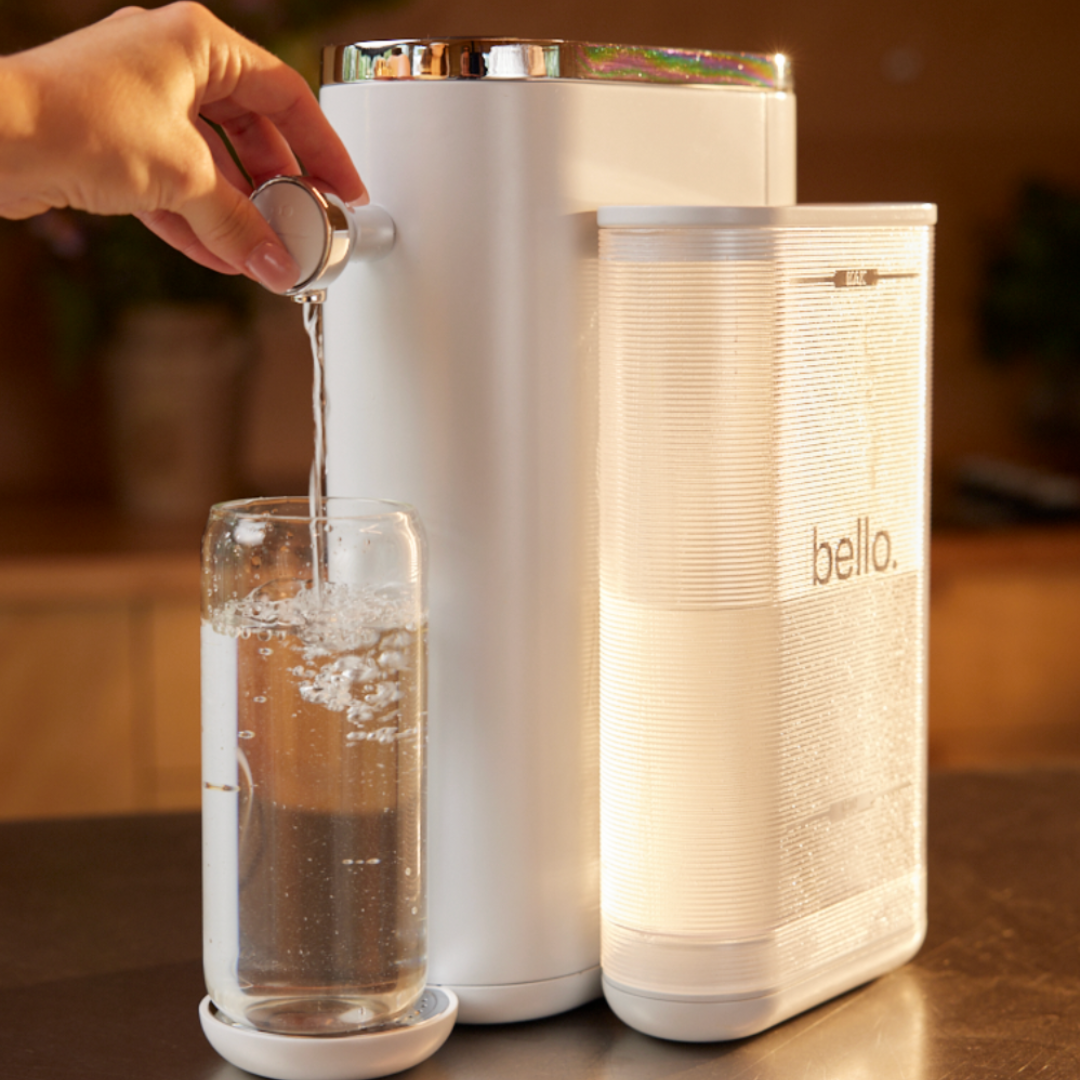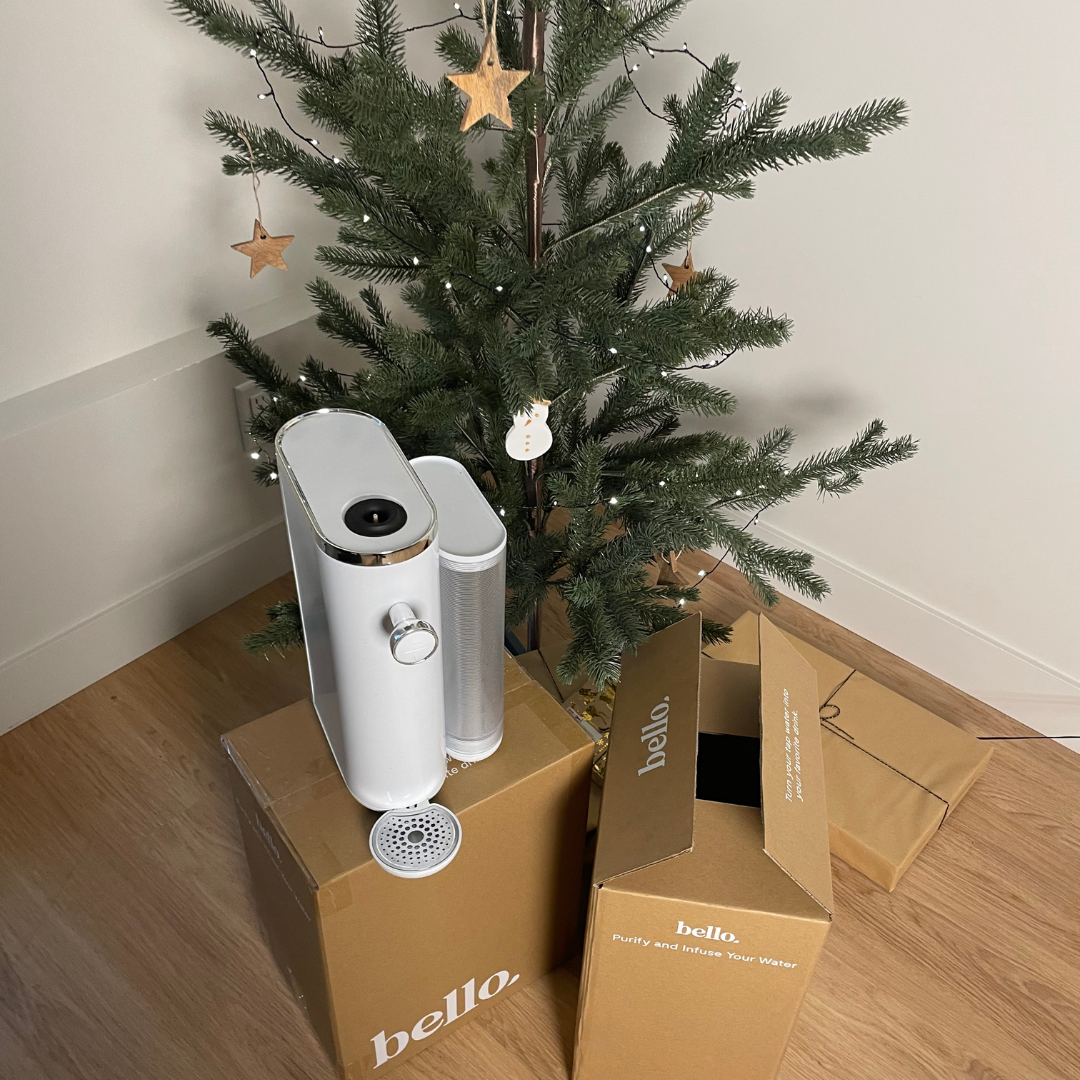In a world where hydration is synonymous with health, the debate between bottled water and water from a filtering machine has become increasingly important. The choices we make about the water we consume have a significant impact on both our well-being and the environment. Let's unmask the truth behind comparisons between bottled water and at-home machines, and explore why the decision you make can influence not only your health, but also the world around you.
Introduction: The dilemma of hydration choice
When it comes to hydration, the choice between bottled water and filtered water at home is a crucial one. This choice goes beyond simply quenching thirst; it extends into considerations related to health, convenience, environmental impact and the quality of the water we choose to incorporate into our daily lives.
Bottled Water : Convenience vs. Conscience

Bottled water, with its undeniable practicality, has become an essential part of many people's daily lives. It offers the possibility of hydrating quickly, adapting perfectly to our hectic lifestyles. However, by lifting the veil on the reality behind its obvious convenience, we reveal the consequential environmental cost associated with single-use plastic packaging, leaving an ecological footprint that begs for reflection. In addition, greater awareness is quickly emerging around the potential for contaminants to be found it bottled water, thus raising concerns about the quality of what we consume on a daily basis.
As we further explore the consequences of making this choice out of convenience, we also come face to face with unsuspected economic implications. While bottled water may seem like a quick and easy everyday solution, the cumulative costs, both financial and in terms of natural resources, urge for more careful consideration. The recurring expenses associated with the ongoing purchase of bottled water can quickly add up, thus raising questions around the long-term economic sustainability of this consumption model.
The impact of a water purification device on our health and the planet

Conversely, water from a water purification device is seen as a symbol of sustainability and health. Water filter systems promise to eliminate impurities, providing a more transparent path for water from your tap to your glass. The convenience of having purified water available on hand without the ecological consequences associated with single-use plastics sounds like a dream combination to us!
Purity is important for our health
Preserving the purity of our water is crucial to our general well-being. When it comes to health, it's imperative not to neglect the quality of the water we consume on a daily basis. At Bello, we are committed to ensuring that the water you drink is as pure as possible.
Our commitment to health is demonstrated through the use of an NSF 42, 53, 372 and 401-certified filter, specifically designed to remove common contaminants such as chlorine, lead and microbial elements from tap water. This state-of-the-art filter not only ensures optimal water purification, but also offers a quality that surpasses that of many bottled waters available on the market.
Understanding the importance of water quality becomes imperative in the context of long-term health. Regular consumption of pure water, free from harmful substances, can makes a significant contribution to your physical well-being. Effective purification of our drinking water is an essential step in minimizing the risks associated with ingesting contaminants that could compromise your immune system and impact your overall health.
When you choose Bello, you're choosing to enhance your quality of life. Our certified filter surpasses rigorous standards which ensure that every drop of water you consume is free from impurities that could be potentially detrimental to your well-being. In this way, the purity of your water becomes a fundamental element in building a long-term, healthier and more sustainable lifestyle.
Environmental Impact: Bottled Water's Plastic Predicament
The plastic predicament associated with bottled water is a glaring environmental concern. From manufacturing to disposal, the life cycle of plastic bottles leaves a significant carbon footprint. Filtered water at home, on the other hand, presents a more sustainable option, reducing the need for single-use plastic and contributing to a healthier planet.
Cost Considerations: Evaluating the Economic Aspect
When assessing the convenience of bottled water, there's no denying that it comes at a cost. On the other hand, the option of acquiring a water purification device may initially represent a more substantial financial investment. Nevertheless, closer analysis reveals that the long-term profitability of water purification devices far outweighs the cumulative expenses associated with the ongoing purchase of bottled water.
At Bello, this profitability is all the more evident because, once you've invested in our machine, the need to replace the filter occurs only twice a year. This feature adds a significant economic benefit to the use of a water purification device, allowing you to experience substantial savings over time while also helping to reduce the plastic waste associated with bottled water. By opting for this solution, not only do you benefit from filtered water on demand, but you also contribute directly to environmental sustainability, making the initial investment a wise long-term decision.
Making a Choice: Conclusion
Between choosing bottled water and water filtered through a water purification device, the choice you make becomes a delicate balance between personal preference, health priorities and environmental awareness. As we continue to unravel the truths behind each option, it becomes clear that decisions go beyond the initial appeal of practicality.
So, whether you opt for the convenience of bottled water or the lasting purity of water filtered at home, the key is to make a conscious choice that matches your values and makes a positive contribution to your well-being and that of the planet.




Leave a comment
This site is protected by hCaptcha and the hCaptcha Privacy Policy and Terms of Service apply.